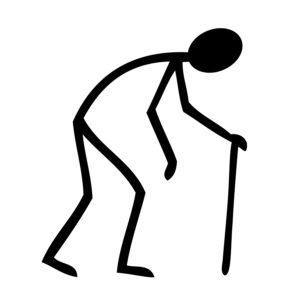 Ageism is rampant. Nobody likes to be treated like an “old person.” In the U.S., there are examples of blatant ageism in hiring for jobs and other situations. As seniors, it’s insulting when someone treats you like you can’t hear or understand what’s going on. We do, more than younger adults can imagine. Years of experience make us acutely perceptive.
Ageism is rampant. Nobody likes to be treated like an “old person.” In the U.S., there are examples of blatant ageism in hiring for jobs and other situations. As seniors, it’s insulting when someone treats you like you can’t hear or understand what’s going on. We do, more than younger adults can imagine. Years of experience make us acutely perceptive.
I have a friend who recently fell and injured herself. At the care clinic, they asked her age. She responded by announcing in a loud voice, “I’m 70, but don’t you dare treat me like an old lady, I can dance circles around you any day!” And she’s right.
What Is Ageism?
Just to be clear on what it is, according to Wikipedia, ageism (also spelled “agism”) is stereotyping and discrimination against individuals or groups on the basis of their age. The term was coined in 1969 by Robert Neil Butler to describe discrimination against seniors, and patterned on sexism and racism.
Butler defined ageism as a combination of three connected elements. Among them were prejudicial attitudes towards older people, old age, and the aging process; discriminatory practices against older people; and institutional practices and policies that perpetuate stereotypes about elderly people.
What younger people probably don’t know is that seniors show up in different stages of health. Someone at 90 can outwit another at 70, just as another at 60 may be half deaf, blind and slower than molasses. Heck, some mornings I feel like molasses that’s been refrigerated.
What’s important for younger people to recognize is that how we look is often misleading. Case in point: I was jogging on the main road the other day, blond pony-tail bobbing, shorts and tank top on, and a car whizzed by from behind. I heard wolf-whistles. But when they passed me all sounds stopped abruptly. I had to laugh. From behind, I guess I looked pretty young! (At least in my mind, that’s what I imagined!)
Ask Yourself: Are You Prejudiced Against Aging People?
The other day, a reader asked us this question:
- In America, people are devalued with age—especially once they hit 40-50. How can we fight the stereotypes of aging?
I don’t know how old the reader was, perhaps younger than 65, but in any case, if they are asking this question, I guessed they had felt the effects of ageism. Perhaps someone judged them because of their age, I don’t really know. But the question got me thinking of my own ageism.
Yes, I think ageism is a big hurdle for all seniors. Because as members of a culture, we adopt prejudices when we are younger, and then still have them when we’re older. They don’t go away. Ageism is within all of us just like racism and sexism. You don’t escape just because you’re a certain race or gender.
Unless we confront the “-isms” within our culture and most importantly within our own minds, we can’t accept ourselves as who we are. We at some point have to stop reacting, in favor of fully being who we are.
How Ageism Shows Up in Seniors
Here’s an example from my own life. Maybe seven years ago (I must have been 67 or so), one of my women friends complained that her husband wouldn’t do a five-year goal plan with her. She thought his life could be more focused with milestones set out to be achieved.
In my mind, I found myself thinking, “Why would he want to set 5-year goals? He’s 86 now. He doesn’t want to set himself up for failure.” That’s ageism.
Why? Today the guy’s 91 or so, and still plays tennis and walks like a 50-year-old. But at the time, I was assuming people in their 80’s had one foot in the grave, and goals might be set a day or week at a time…
Today, almost 75 with a husband almost 80, I know how wrong my thinking has been. I too have assumptions about aging. And everyday, previous beliefs get shattered. I now know two tennis players in their 90s. I should be so lucky.
How to Fight Ageism in Yourself
I think the most important thing we can do is to pay attention to our self-care habits. These six platforms can ensure we are able to function longer without many of the chronic diseases that make us frail.
- Exercise at least 30 minutes a day.
- Eat more vegetables, no sugar, good fats, fish and moderate meat.
- Maintain a healthy weight.
- Get at least 7-8 hours of good sleep each night.
- Learn to manage stress better.
- Increase friendships and participation in social events. Stay connected.
Then, if we’re doing the best we can with what we’ve got, we’re probably doing more than any younger person is doing. We can’t change attitudes without first changing our own.
If you want more “how to age well” tips, get our book the War on Aging, sold on Amazon, ebook or print book. Your thoughts on ageism? Hit the comment link and share.

Recent Comments